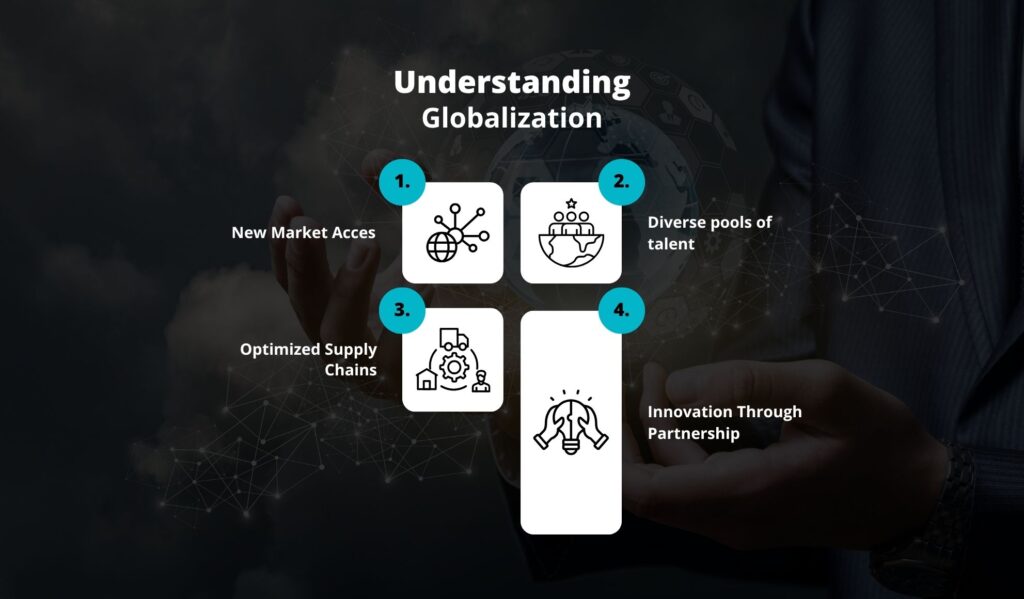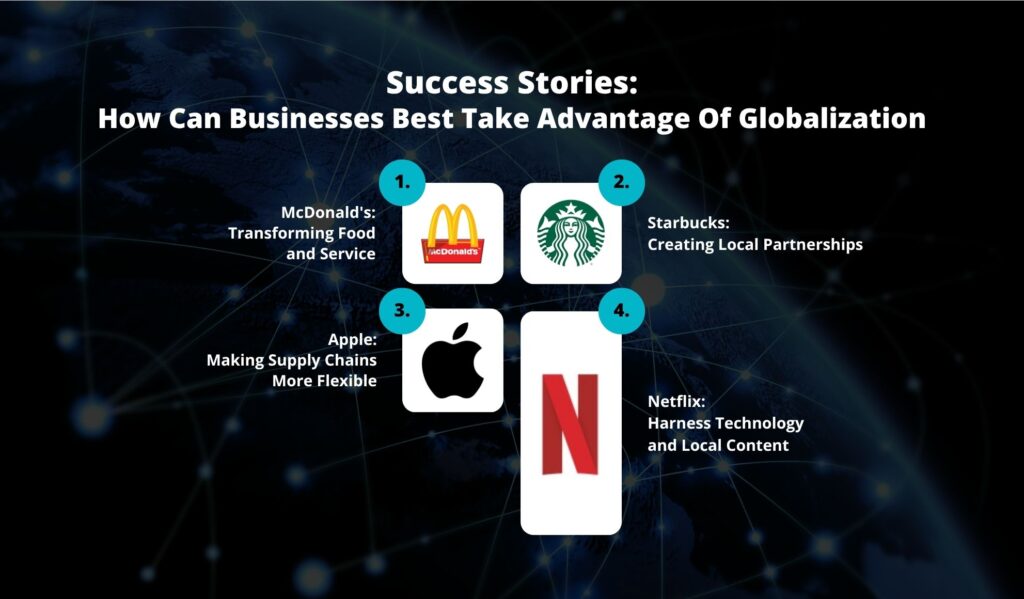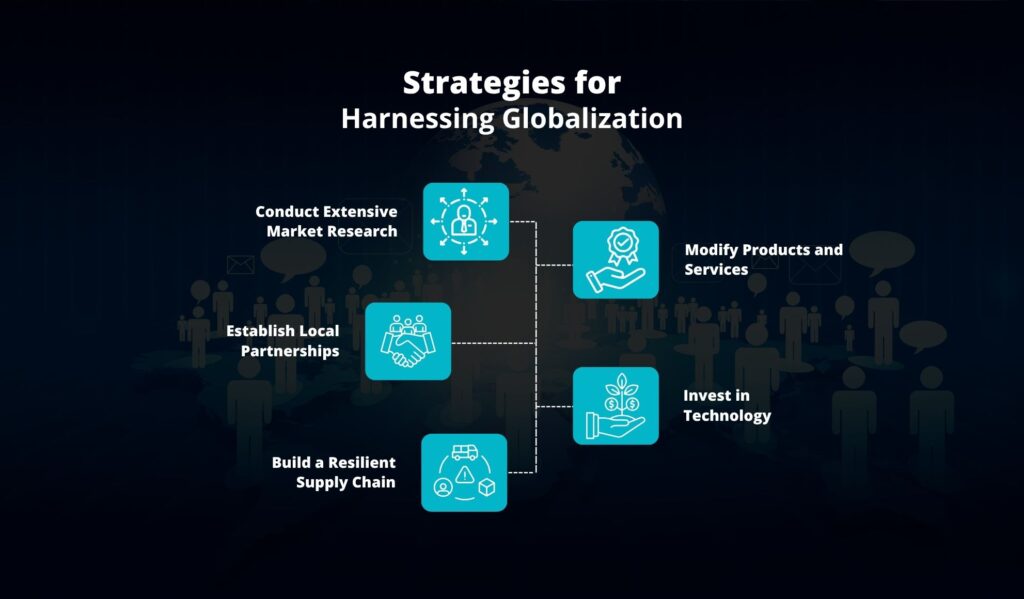Navigating Globalization: Best Practices for Businesses to Thrive Internationally
by Barsha Bhattacharya Business 30 May 2025

In the networked and fast-paced world we live in, one giant question entrepreneurs are asking is: how can businesses best take advantage of globalization?
Whether starting a new company or managing an established one, knowledge of globalization can be invaluable.
It’s not merely selling products abroad—it’s about accessing global markets, building diverse workforces, and designing improved supply chains.
Globalization presents numerous opportunities, but also poses challenges such as cultural differences, complex regulations, and intense global competition. Still, companies that leverage it can develop faster and more powerfully than ever before.
Here, in this blog, we will inform you about what globalization is, examine the current trends and statistics, and touch upon some of the most popular companies that have gone global.
Most importantly, we will provide you with effective strategies for optimizing business through globalization, so that you can develop your business confidently.
Understanding Globalization

Globalization is when nations rely more and more on each other through trade, technology, communications, and cultural sharing.
To companies, it makes them expand and mature internationally. Following is what this is in plain language:
New Market Access: Companies can sell goods and services in other countries, thereby expanding their reach to more consumers.
Diverse pools of talent: Businesses can source skilled workers from other countries, introducing new talent and skill sets.
Optimized Supply Chains: Buying materials and finished goods globally minimizes cost and maximizes efficiency.
Innovation Through Partnership: Knowledge Exchange and Cross-Border Collaboration Fuel Innovation and Competitiveness.
In other words, globalization expands businesses to become larger, quicker, and wiser by using opportunities globally.
It is not just meant for large businesses—small enterprises and start-ups too can benefit from accessing the global populace with the right tools and tactics.
The State of Globalization Today
You may wonder, “Is globalization increasing?” Indeed! Despite setbacks such as the COVID-19 pandemic and international tensions, globalization remains a significant component of the world economy.
For example, multinational companies like General Electric (GE) have exported a great deal. During the last 15 years, 85% of GE’s jet engines and gas turbines have been exported outside the United States, showing the importance of foreign markets.
And then there are companies like IKEA that have demonstrated perseverance by redirecting their supply chains and boosting online sales, enabling international commerce to continue even in challenging times.
Challenges in the Global Scene

Globalization brings a lot of opportunities with it, but it is not always easy for businesspeople. Establishing a business in another country is not easy. These are some of the most frequent ones:
- Cultural Differences: What works in one nation will totally not work in another. Not understanding cultural practices or consumer behavior can lead to strange marketing or products that consumers do not want.
- Regulatory Complications: Each nation has its own set of laws, taxes, and regulations to abide by. Mastering them all—and remaining within the law—can be challenging and time-consuming.
- Supply Chain Vulnerabilities: It is dangerous to rely on overseas suppliers. Natural disasters, political instability, or shipping delays can severely disrupt the delivery of your products.
- Intense Competition: Local businesses aren’t just your competition—you’re up against existing businesses in the market who already know the market and understand it very well.
Knowing these problems enables businesses to prepare more effectively and set up plans to expand overseas with confidence.
Success Stories: How Can Businesses Best Take Advantage Of Globalization?

Globalization provides adequate opportunities for expansion, yet to actually expand, companies must possess smart strategies. How best do companies utilize globalization, then?
Let us consider some key strategies through the prism of examples of successful companies.
McDonald’s: Transforming Food and Service
McDonald’s is a great case of product adaptation to local culture. They don’t serve the same burgers around the globe; they adapted their menu to suit local palates.
For example, in India, where many individuals don’t consume meat, McDonald’s sells the McAloo Tikki burger, which is, in fact, a potato patty well-known there.
In Japan, they offer teriyaki sauce burgers. This product adaptation strategy serves McDonald’s well in appealing to customers and demonstrates that they honor other cultures, making their brand friendly and inviting wherever they are in the world.
Starbucks: Creating Local Partnerships
Starbucks was prudent to enter China by joining hands with local businesses. Local partners helped guide Starbucks through complex regulations, local tastes, and cultural subtleties.
This partnership helped to establish connections with Chinese customers and modify the Starbucks experience to suit local tastes, for instance, by adding teas to coffee.
Joining hands with local businesses is a powerful way for businesses to learn quickly and earn respect as they enter foreign markets.
Apple: Making Supply Chains More Flexible
Apple is renowned for its cutting-edge supply chain management, which is crucial to its global success.
Moreover, Apple has numerous suppliers in various countries, rather than relying on a single source. This flexibility enables Apple to address global challenges, such as political instability or natural disasters.
With various suppliers and delivery options, Apple remains capable of creating products and fulfilling global needs more effectively than companies with limited sources.
Netflix: Harness Technology and Local Content
Netflix shows how technology and local content can help it succeed worldwide. They utilizes data and online platforms to deliver content quickly and effectively to people worldwide.
However, what makes Netflix special is that it focuses on creating shows and movies specifically for certain markets, such as Korean dramas or Spanish-language programming, allowing it to connect with local audiences.
This marriage of technology and local content makes Netflix useful and popular in so many different markets.
Market Research: The Key to Success
Throughout all these examples, one thing is certain: extensive market research is necessary. Understanding customer behavior, cultural practices, and legal regulations enables firms to avoid mistakes and tailor their products and services accordingly.
Whether it is McDonald’s adapting menu items or Netflix deciding which shows to create, extensive knowledge of the local market is a necessity.
By acquiring these tactics, companies will be able to provide the answer to the question: how will they benefit from globalization?
It’s a matter of smart adaptation, collaboration with local residents, constructing flexible supply chains, employing technology wisely, and conducting quality research.
With these practices, companies can expand internationally and remain connected and responsive to consumers worldwide.
Strategies for Harnessing Globalization

Globalization presents tremendous opportunities for businesses, but to capitalize on them, companies must have a well-defined plan.
How can businesses best take advantage of globalization? It starts with intelligent and adaptable strategies that enable them to emerge successfully in global markets. Below are some effective means of doing it:
- Conduct Extensive Market Research: Before venturing into a new location, it is essential to understand the local culture, consumer behavior, laws, and the needs of the target consumers. This prevents expensive mistakes and adjusts your method to suit the market.
- Modify Products and Services: There is no universal product or service. Modify your approach to suit local tastes, preferences, and requirements. This may involve modifying product ingredients, prices, or even packaging.
- Establish Local Partnerships: Working with local businesses, distributors, or suppliers will enable you to better understand, gain confidence, and adjust to new business environments more effectively.
- Invest in Technology: Use computer software to streamline operations, enable working remotely, manage supply chains, and access customers worldwide. Technology transcends distance and keeps operations in prime condition.
- Build a Resilient Supply Chain: It is dangerous to rely on a single supplier. Have multiple suppliers and delivery channels so that you can carry on in the event of political unrest, natural disasters, or pandemics.
With these strategies, companies of any size can benefit from globalization and develop responsibly, taking into account the world’s needs.
Flexibility, research, and tapping into neighborhood markets are the secrets to success globally.
Also read



































































































